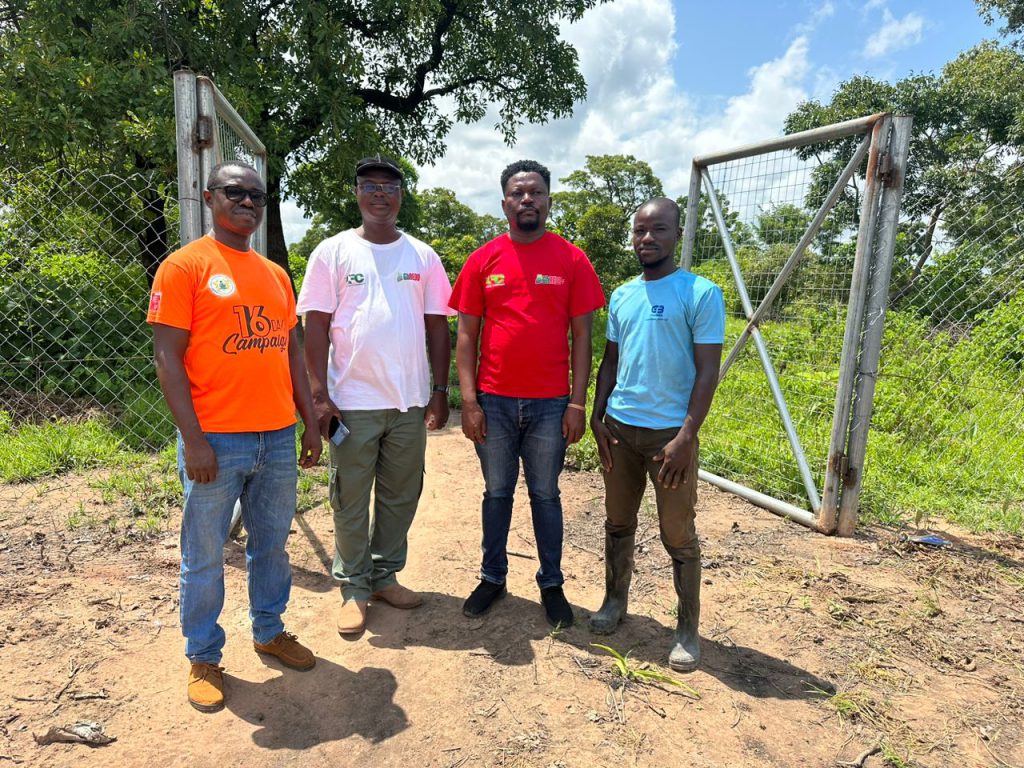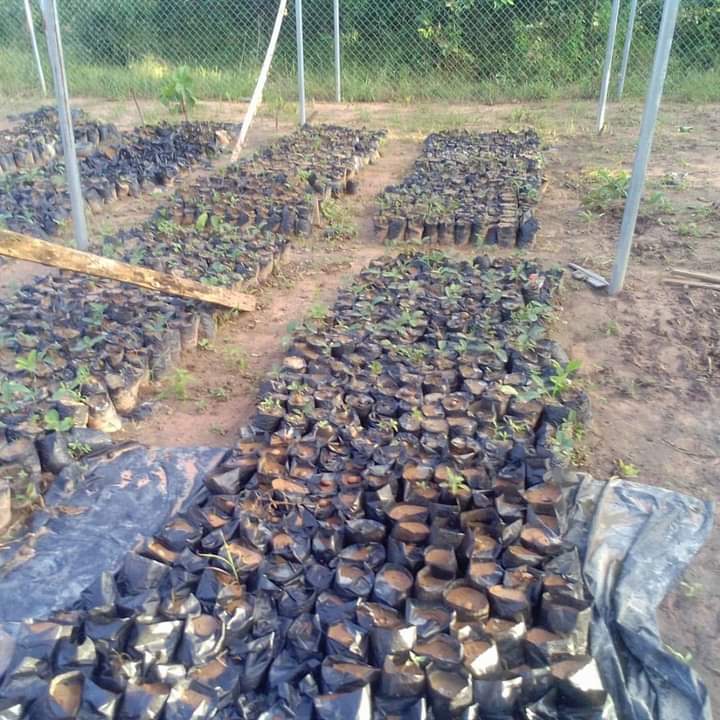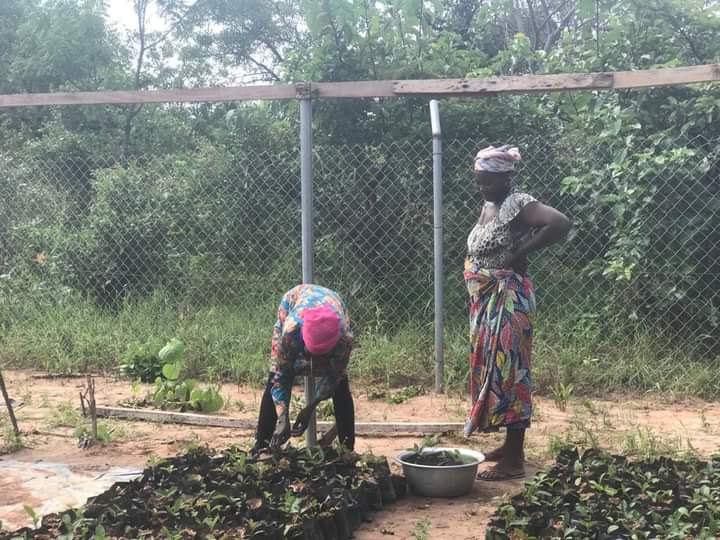
As part of monitoring and supervision in the implementation of the Ghana Shea Landscape Emission Reduction Project (GSLERP), SNG in July this year, had a visitation from our key partners to our nursery sites at Jantong Dashie and Achubunyo.
The partners included the Forestry Commission of Ghana (FC), Global Shea Alliance (GSA) and the United Nations Development Programme (UNDP).
Their visit was to monitor the activities undertaken so far by the Shea Network Ghana and also to find out the challenges faced in the implementation of the project.
SNG in collaboration with the mentioned partners is implementing the Ghana Shea Landscape Emission Reduction Project at Jantong Dashie and Achubunyo in the savanna region aimed at raising eleven thousand and seventy-five (11,075) shea seedlings at Jantong Daashe and eighteen thousand and seventy-eight (18,078) at Achubunyo. Our nursery data however shows that as at October, 2023, a total of seven thousand five-hundred and nine-thpousand seedlings have been raised in the two nurseries.
(GSLERP), a five-year climate restoration activity implemented by the Ghana Forestry Commission (FC), with the technical support of the Global Shea Alliance and the UN Development Programme (UNDP), and alongside multiple national and local governing institutions, civil society representatives and private sector actors who will meaningfully and effectively participate in its further design, implementation and benefits.

The project will directly strengthen the livelihoods and climate resilience of 100,200 people (78,850 women and 21,350 men). Restoration of trees, decreased deforestation and fire management covering almost 500,000 hectares will indirectly contribute to the retention of soil moisture, the reduction of evapotranspiration and maintenance of soil fertility. These interrelated social and environmental interventions are key.
The National Adaptation Strategy for Climate Change notes the need to enhance the adaptability of vulnerable ecological and social systems by enhancing the capacity of susceptible groups to sustainably utilize land resources, enable value addition in the utilization of forest resources and contribute to building an economy that is capable of withstanding shocks without putting Ghana’s development agenda in jeopardy.

The project catalyses transformative change across this landscape, attracting significant private sector investment, through the focus of the shea value chain and shea restoration.
GCF funds and co-finance will support women collectors to re-stock 1.75 million trees in the parklands with higher and quicker yielding varieties of shea ensuring future supply, aggregation and direct marketing through performance-based contracts between NGOs who are members of the Global Shea Alliance and women’s groups.
www.sheanetworkghana.org/Adam Abdul-Fatawu Wunizoya-Communications Officer

Comments are closed.